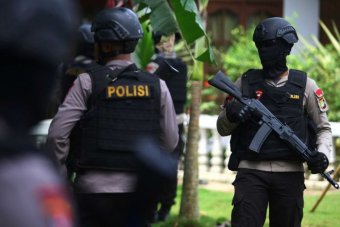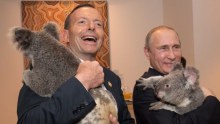ASIO warns tourists and expats of terrorist threat in South-East Asia
Posted
The director-general of the Australian Security Intelligence Organisation (ASIO), Duncan Lewis, has sounded a warning to tourists and expatriates in the region.
"One of the greatest terrorist threats to Australians is in South-East Asia," Mr Lewis said.
"This can be attributed to several factors including the rise of ISIL's influence in the region, as well as the fact a number of Australians live, work and holiday there."
One key concern was that ASIO estimated about 600 people from Indonesia, Malaysia and the Philippines had gone to fight with terrorist groups in Syria and Iraq.
With the tide turning against Islamic State in the warzone, some would seek to return home.
In a detailed briefing to journalists on the shape of the domestic and international terror threat, Mr Lewis confirmed that 64 Australian foreign fighters had been killed in the Middle East. Eighty-seven per cent were under 30, with the youngest to die just 18.
At home, police are investigating 200 people with links to 100 Australians fighting for terrorist groups in Syria and Iraq.
The vast majority of the Australian foreign fighters being tracked by intelligence agencies were men and 80 per cent were under 35.
There were also 70 children who had travelled to Syria or Iraq with their parents, or had been born there.
With IS suffering a series of defeats in Iraq, and under increasing pressure in Syria, police and intelligence agencies are preparing for the threat posed by returning fighters and their families.
Since 2012, 195 passports have been cancelled. Another 36 had suspended to prevent people from leaving to join the fight, Mr Lewis said.
Forty Australian foreign fighters have returned from the Middle East but most of those pre-dated the rise of IS and some who fought with the Kurds are not considered a threat.
But Mr Lewis said there was no doubt IS continued to exert an influence outside Syria and Iraq, through direct attacks organised by the group or its affiliates or by inspiring and encouraging attacks.
The key threat to Australia was that it inspired an ever younger cohort of radicals to conduct lone wolf attacks.
IS was very good at identifying vulnerable, disaffected young men, he said.
This meant that police had to change tactics from gathering evidence for a prosecution to becoming much more reactive and intervening as early as they could.
The number of young radicals was small but they emerged quickly and just a few could create an enormous problem.
Since September 2014 there had been four domestic attacks in which people died and 12 counter terror disruptions, all but one of which had been inspired by a violent extremist interpretation of Sunni Islam.
Topics: terrorism, unrest-conflict-and-war, travel-and-tourism, tourism, asia








